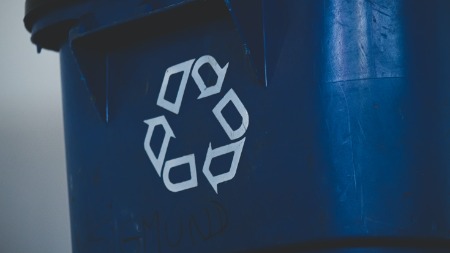Technical Article - September 2, 2019
Swiss waste-management policy, a peek behind the curtains of one of the most efficient country in the world.


Written by Expert: Benjamin Demma 5 min read
Switzerland is one of the countries with the highest per capita waste production in the world. However, thanks to the waste management policies adopted, it is also one of the countries with the highest recycling rates. Let's look at the main points of the waste management policy adopted by the red-white-flag country.
Typically, the production of urban waste is closely correlated with the number of inhabitants and their economic well-being. Not surprisingly, the highest is the population, the more waste is produced. Similarly, the higher is the economic well-being, the more waste. This trend suggests that, economic growth, is both a weapon and a shield given its potential of both contributing to significant benefits and creating costs with an impact on human well-being.
While Switzerland has a reputation for being one of the cleanest countries in the world, its waste-production rate, compared to the worldwide ranking, would indicate the opposite. With over 90 million tonnes of waste (700kg per capita) produced per year, Switzerland scores among the worst countries.
Although these numbers are definitely not encouraging, and more sensitisation work could be done, every cloud has a silver lining. In fact, thanks to the waste management policy adopted, Switzerland is among the top countries in the world for the efficiency of its recycling programme. More specifically, the country achieves up to 50% recycling rate, where the remaining waste is further exploited (incinerated) to produce energy.
But, what are the main guidelines and objectives of the Swiss waste management policy?
1) Prevention: influencing consumers’ behaviour
Preventing, or at least reducing, waste generation is an important goal in the Swiss waste-management policy. Individual behaviour (purchase and consumption) plays a central role in tackling the problem at its source. Unfortunately, while is not possible to intervene directly in the global market and act on individual’s behaviour, Swiss policy aim at raising awareness in the general public with the application of taxes on waste. Essentially, the more waste is produced the higher will be the taxes paid.
2) Intervention: Encouraging consumers to recycle
This concept includes both material enhancement (recycling) and energy valorisation through incineration, where energy is recovered in the form of electricity and heat. Where possible, the heat recovered from the waste incineration process is used to heat-up buildings (district heating), particularly administrative ones. The intervention plan includes also an active effort of (i) making recycling infrastructures available and easily accessible to the population, and (ii) allowing citizen to dispose waste for free (upon correct separation).
3) Recover: Ensuring correct waste disposal
As explained above half of the waste produced in Switzerland is recycled, fulfilling a new purpose, while the remaining half is incinerated. From the incineration process the ashes are taken to specific treatment plants where a de-metallization process is used to extract and recover the metals present in the slag (iron, stainless steel, aluminium, and copper). The final product, which has now no further commercial value, is then disposed in contained landfills (designed to prevent environmental pollution).
Where does the ultimate liability lie?
The costs for waste disposal are borne by those who produce them. This principle is implemented by taxing the amount of waste produced by each individual. In fact, only official bags (provided by the authorities) can be used for urban waste disposal and collection. These bags are available in different sizes and costs per litre of content (for example in Bellinzona 0.033 €/litre).
The authorities are responsible for supervising and sanctioning any illegal waste disposal. The same applies to littering, or the abandonment of small quantities of waste in public places. This activity is prohibited and punishable by the authorities. Although the “legal punishment” has a deterrent effect, the real changes in consumer’s habit can be made through a correct education. Raising awareness is crucial when tackling a social problem such as waste littering. In particular, different strategies can be implemented, such as early-stage education in public schools or through public campaigns, depending on the targeted age.
In conclusion, although Switzerland has strong basis and correctly implement a successful waste management strategy, acting at the source of the problem (preventing waste production) remains a key area to tackle in the future. It cannot be argued that a more informed citizen makes a more informed and engaged consumer, thus educational campaigns that promote sustainable actions should be implemented consistently. Lastly, to be truly effective and impactful, the efforts should be addressing both side of the medal, "consumer" and "producer". Thus, the governments should take actions at a regulatory level and penalise those who manufacture products that contribute most to the creation of waste (for example products that have a particularly short life span or that have excessive packaging).
References:
- The Organization for Economic Cooperation and Development OECD (2015), “Municipal Waste”, OECD Environment Statistics (database).
- Repubblica e Cantone Ticino, Dipartimento del territorio, “Piano di gestione dei rifiuti del Canton Ticino 2019-2023”, Switzerland.

Written by Expert: Benjamin Demma on September 2, 2019


